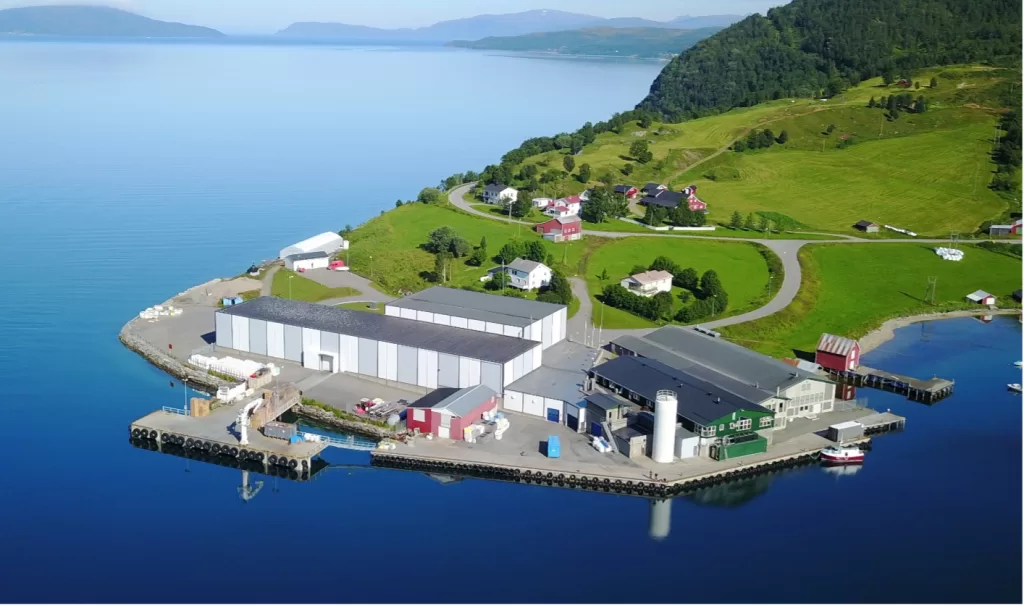General Information
- Type of industry: Food & Beverage
- Technology involved: High Temperature Heat Pumps, ammonia and pentane in cascade from Mayekawa
- Type of production: Seafood industry – cooked and peeled prawns
Partners involved
Demo-site location
The application: Stella Polaris
Stella Polaris operates a production facility which is cooking and peeling cold water prawns (Pandalus borealis). Following the cooking process, the prawns are peeled, frozen and packed before being shipped to customers worldwide within the retail and hotel, restaurant and catering segments.

Production site of Stella Polaris
Stella Polaris has strong goals for improving sustainability through energy savings and the subsequent phasing out fossil fuel. Stella Polaris aims to have zero-emission production by 2030, and will meet future public regulations and customer requirements and contribute to a more sustainable future.
In the Stella Polaris production facility, steam generated from a propane boiler is used (primarily) for cooking of the shrimps and also for other processes such as heating and cleaning. In meeting the goals of 2030, Stella Polaris wants to minimize the steam consumption of their process and transition away from fossil fuels for its generation. As a first step, Stella Polaris is investing in a new prawn cooker which is intrinsically more efficient, using 68 % lower steam consumption for the same throughput of product. The current cooker has outlets for excess steam., leakages and condensed steam is led to drain. The new cooker will be closed with no outlet for excess steam and all condensate will be reused to preheat the shrimp just before entering the cooker.

Top of current shrimp cooker at Stella Polaris (high-risk side). Picture showing leakage of steam.
In order to reduce reliance on fossil fuel for steam production and further increase the energy efficiency of the process, Stella Polaris has identified a heat pump as the most interesting technical solution. Stella Polaris has joined the SPIRIT project to demonstrate this sustainable heating technology for cooking of prawns in their processes and take a large step towards zero emission production by 2030. Through the use of a heat pump, heat from the existing freezing plant (normally rejected to sea water) can be upgraded in temperature to produce steam for cooking of the prawns. In this way, the heat needed to cook the prawns can be generated using (sustainably sourced) electricity, eliminating process related CO2 emissions which are currently 0.83 kt/a. Due to the uptake and use of waste heat from the refrigeration plant, the heat generated by the heat pump is more than the electricity input, leading to site energy savings of 1.3 GWh/a.
The technology: Mayekawa
The heat pump to be delivered by Mayekawa and installed at Stella Polar consists of a cascade system based on two cycles that use ammonia and a hydrocarbon (Pentane) as working fluids, respectively.
Knowledge Provider: TNO
TNO is playing a coordinating role in the demonstration, managing the communication between partners and ensuring the specific requirements of the SPIRIT project are met. TNO also takes a technical role in the demonstration. In the first instance, TNO will conduct extensive modelling of the heat pump and overall system, with the goal to optimise the performance. This optimisation relates to maximising the achievable COP under steady state conditions as well improving the control response of the system to mitigate the effect of system disturbances. Secondly, TNO will take an active role in the development and execution of the testing and measurement program. This involves developing monitoring tools for the heat pump and surrounding utility system and conducting performance evaluations on the system.


